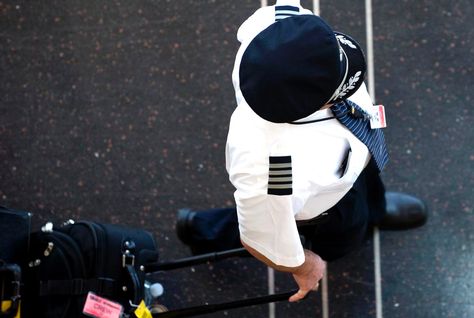Middle East airlines will need to recruit 36,100 pilots and 53,700 technicians over the next 20 years, according to a new Boeing study.
The US plane maker projects the world will face an unprecedented demand for airline pilots and maintenance technicians to 2031 as global economies expand and airlines take delivery of tens of thousands of new commercial airplanes.
The 2012 Pilot and Technician Outlook said that globally 460,000 new commercial airline pilots and 601,000 new commercial airline maintenance technicians will be taken on.

| Advertisement |
"In many regions of the world, our customers are facing challenges in recruiting personnel due to pilot and technician shortages," said Sherry Carbary, vice president, Boeing Flight Services.
While overall demand for aviation personnel remains strong, the projected need for technicians has decreased from last year, due in part to improving airplane technology and maintenance efficiencies as well as older airplanes being retired sooner than average due to higher fuel prices.
The result is better than expected reliability and longer maintenance check intervals. Demand for maintenance personnel, however, is still expected to grow in proportion to the expanding global fleet.
The Asia Pacific region will lead the world in recruitment, Boeing said, with 185,600 pilots and 243,500 technicians needed.
Europe will need to take on 100,900 pilots and 129,700 technicians while North America will need 69,000 pilots and 92,500 technicians.
"Meeting this exponential demand requires increased reliance on new, digital technology such as online and mobile computing," said Carbary.
Earlier this month, Boeing said airlines operating in the Middle East were forecast to add nearly 2,400 new aircraft to their fleets over the next 20 years.
The region will see an additional 2,370 planes in service by 2031, compared to the biggest increase of over 12,000 planes which will join carriers in the fast growing Asia Pacific area.
Globally, Boeing said it projects a $4.5trn market for 34,000 new airplanes over the next 20 years as the current world fleet doubles in size.
Separately, Boeing predicts that Middle East airline traffic will grow 6.4 percent, compounded annually, during the next 20 years.
Revenue passenger-kilometers will more than triple by 2031, supported by healthy development of long-haul, short-haul, and domestic travel, it added.
Last year, a report from the Saudi Aviation Flight Academy showed Gulf airlines are facing a critical shortage of pilots to staff their growing fleets, with at least 1,700 new professionals needed each year to meet demand.
Aviation colleges in the six Gulf states train less than 1,000 new pilots a year, creating a significant supply gap that threatens to stall the growth of local carriers, the report said.









 Search our database of more than 2,700 industry companies
Search our database of more than 2,700 industry companies









